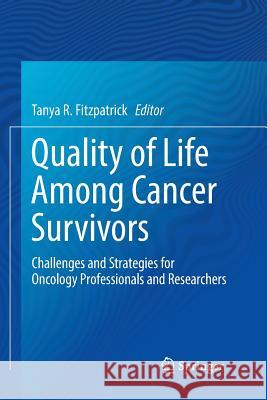Quality of Life Among Cancer Survivors: Challenges and Strategies for Oncology Professionals and Researchers » książka
topmenu
Quality of Life Among Cancer Survivors: Challenges and Strategies for Oncology Professionals and Researchers
ISBN-13: 9783030091743 / Angielski / Miękka / 2019 / 207 str.
Quality of Life Among Cancer Survivors: Challenges and Strategies for Oncology Professionals and Researchers
ISBN-13: 9783030091743 / Angielski / Miękka / 2019 / 207 str.
cena 200,77
(netto: 191,21 VAT: 5%)
Najniższa cena z 30 dni: 192,74
(netto: 191,21 VAT: 5%)
Najniższa cena z 30 dni: 192,74
Termin realizacji zamówienia:
ok. 22 dni roboczych.
ok. 22 dni roboczych.
Darmowa dostawa!
Kategorie:
Kategorie BISAC:
Wydawca:
Springer
Język:
Angielski
ISBN-13:
9783030091743
Rok wydania:
2019
Wydanie:
Softcover Repri
Ilość stron:
207
Waga:
0.32 kg
Wymiary:
23.39 x 15.6 x 1.19
Oprawa:
Miękka
Wolumenów:
01
Dodatkowe informacje:
Wydanie ilustrowane











